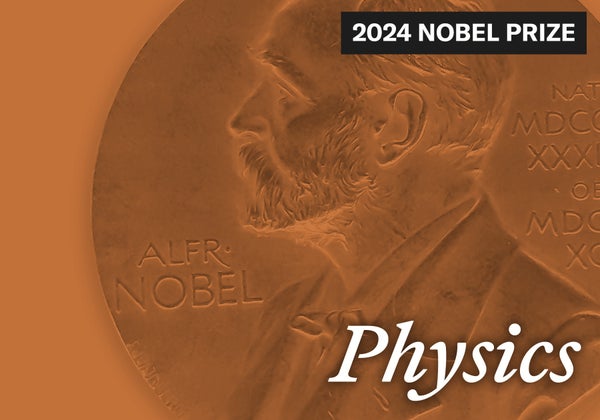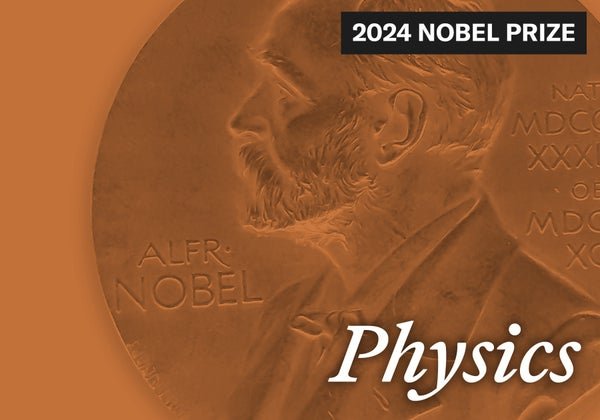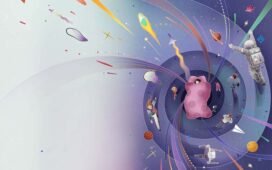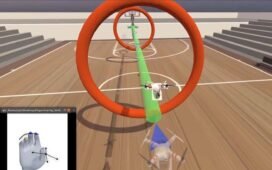October 8, 2024
3 min read
Nobel Prize in Physics Awarded for Breakthroughs in Machine Learning
The 2024 Nobel Prize in Physics was given to John Hopfield and Geoffrey Hinton for development of techniques that laid the foundation for revolutionary advances in artificial intelligence

John Hopfield and Geoffrey Hinton won this year’s Nobel Prize in physics “for foundational discoveries and inventions that enable machine learning with artificial neural networks,” the Nobel Committee announces.
vanbeets/Getty Images (medal)
The human brain, with its billions of interconnected neurons giving rise to consciousness, is generally considered the most powerful and flexible computer in the known universe. Yet for decades scientists have been seeking to change that via machine learning approaches that emulate the brain’s adaptive computational prowess. The 2024 Nobel Prize in Physics was awarded on Tuesday to the U.S. scientist John Hopfield and the U.K. scientist Geoffrey Hinton, each of whom used the tools of physics to develop artificial neural networks that laid the foundations for many of today’s most advanced artificial intelligence (AI) applications.
Artificial neural networks are inspired by the brain’s anatomical structure, and represent neurons with nodes that possess different values. These nodes form networks of connections, akin to the brain’s natural neural synapses, which can be made stronger or weaker through training on any arbitrary data set. This adaptive response allows the artificial neural network to better recognize patterns within data and make subsequent predictions for the future—that is, to learn without being explicitly programmed.
Hopfield, a professor at Princeton University in New Jersey, devised an associative memory—the so-called Hopfield network—that stores and recreates images and other patterns in data. Hinton, a professor at the University of Toronto, used Hopfield’s method in tandem with a different approach, the Boltzmann machine, which excels at pattern recognition. Hinton’s method can be used, for example, to classify images or create new instances of an observed pattern; the technique has helped fuel the ongoing explosion of progress in artificial intelligence that is transforming myriad sectors of human endeavor. Both Hopfield and Hinton began their pioneering work in the 1980s.
On supporting science journalism
If you’re enjoying this article, consider supporting our award-winning journalism by subscribing. By purchasing a subscription you are helping to ensure the future of impactful stories about the discoveries and ideas shaping our world today.
“This year’s physics laureates’ breakthroughs stand on the foundations of physical science,” the Nobel committee said on X (formerly Twitter). “They have showed a completely new way for us to use computers to aid and to guide us to tackle many of the challenges our society face.”
Ellen Moons, a professor at Karlstad University in Sweden and chair of the Nobel committee on physics, described AI’s promise and peril in remarks at a press conference in Stockholm on Tuesday. “The laureates’ discoveries and inventions form the building blocks of machine learning that can aid humans in making faster and more reliable decisions—for instance, when diagnosing medical conditions. However, while machine learning has enormous benefits, its rapid development has also raised concerns about our future. Collectively, humans carry the responsibility for using this new technology in a safe and ethical way for the greatest benefits of humankind.”
Reached via telephone while in California, Hinton admitted he was “flabbergasted” to learn he’d received the award. After decades of effort to advance AI, he is now one of the most prominent advocates for better safeguards, having stepped down last year from an influential position at Google to speak more freely about the technology’s risks. “[AI] will be comparable with the industrial revolution,” he said during his telephone interview. “But instead of exceeding people in physical strength, it’s going to exceed people in intellectual ability. We have no experience of what it’s like to have things smarter than us, and it’s going to be wonderful in many respects… But we also have to worry about a number of possible bad consequences, particularly the threat of these things getting out of control.”








